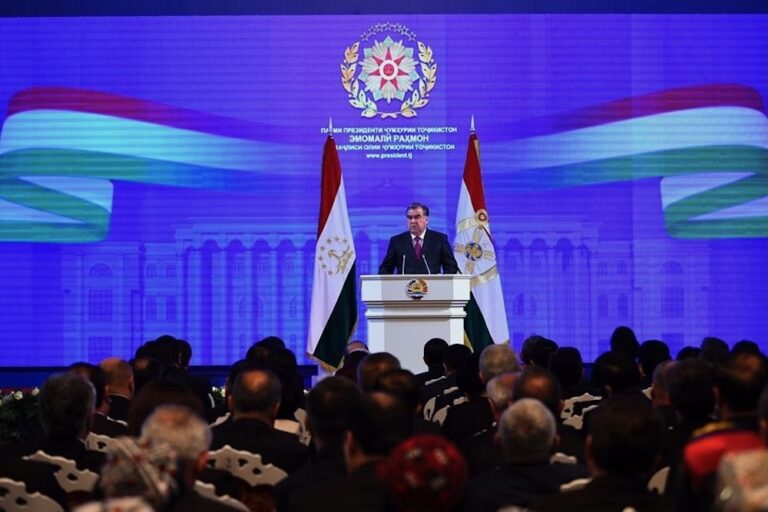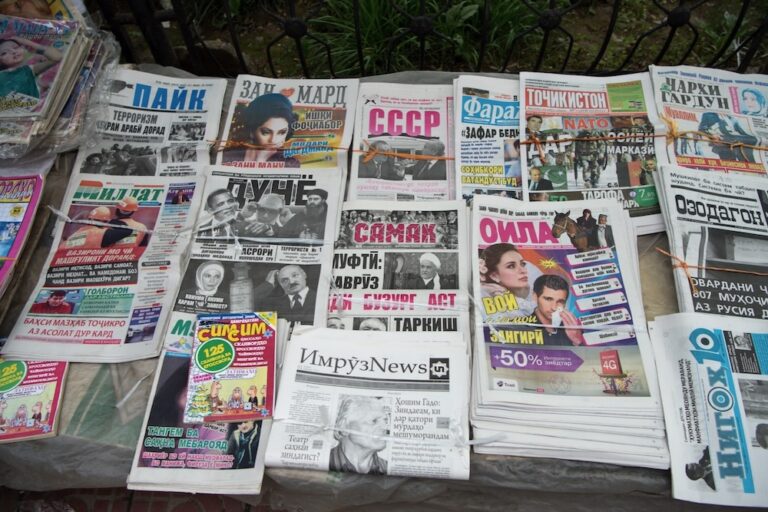(Adil Soz/IFEX) – The following is an abridged 7 February 2005 press release by the National Association of Independent Mass Media in Tajikistan (NANSMIT), an Adil Soz partner: NANSMIT announces results of freedom of speech monitoring in Tajikistan 7 February 2005 Dushanbe In 2004, the National Association of Independent Mass Media in Tajikistan’s (NANSMIT) monitoring […]
(Adil Soz/IFEX) – The following is an abridged 7 February 2005 press release by the National Association of Independent Mass Media in Tajikistan (NANSMIT), an Adil Soz partner:
NANSMIT announces results of freedom of speech monitoring in Tajikistan
7 February 2005
Dushanbe
In 2004, the National Association of Independent Mass Media in Tajikistan’s (NANSMIT) monitoring service documented 312 violations of journalists’ and media outlets’ rights in that country. Monitoring showed that authorities were more tolerant of independent mass media at the beginning of 2004, but that state bodies tightened their grip on free speech in the second half of the year.
The monitoring service registered 189 direct violations of journalists’ and media outlets’ rights. Thirty-six of these cases involved criminal offences intending to threaten journalists and obstruct them from carrying out their professional activities. To date, law enforcement agencies have not brought a single action against the alleged offenders. Journalists have also been reluctant to press charges.
Tajikistan’s legislation, namely Article 30 of the Constitution, Article 2 and 36 of the Law on Print and other Mass Media, and Article 3 of the Law on Television and Radio Broadcasting, guarantees and protects freedom of the press and expression. Prevention of journalists from carrying out their professional activities is a criminal offence under Article 162 of Tajikistan’s Criminal Code.
Access to information, which is also guaranteed under Tajik law, is not protected in practice. In fact, the most common infringement of journalists’ rights is the restriction of access to information. Violations may take the form of direct denial of access to information or barring journalists from events. In 75 cases, journalists were denied information of public interest.
In the final months of 2004, there were fewer threats against journalists as a result of the suspension of private newspapers “Ruzi Nav”, “Odamu Olam” and “Adolat”. The last threat against a journalist was registered in August.


